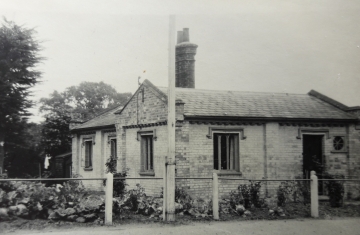With the end of the war in Europe and in the Far East, Betty and I decided it was time to marry, but conditions were still difficult. Rationing (food, clothes etc.) and shortages were the order of the day.
We ‘tied the knot’ in March 1946 and began to search for somewhere to live. Housing was particularly hard to find and mere ‘war workers’ stood little chance when competing against returning service personnel for what precious housing did become available. (I felt this was a little unfair at the time, and that need should have been the primary consideration). I sometimes feel that returning servicemen and women failed to realise just how difficult, and at times dangerous, the home front was in parts of the country. In the same way, we at home can never fully appreciate the hardships and dangers faced by the servicemen and women in the thick of battle. Unfortunately in modern warfare there is often no front line, we are all in it together, men women and sadly, children.

In 1947 our first child Paul was born and soon afterwards we were fortunate to be offered a tiny bungalow to rent at Galleywood, just a stone’s throw from where Betty and I first met. It was old and in need of refurbishment, but at least it gave us a good start and we were happy to have a roof over our heads. It was here that I continued to study, and completed my London Matric, HNC and Graduate membership of the Institute of Electrical Engineers.
Just like my father many years before, I purchased a motorcycle and sidecar. Petrol was still rationed, but for the very first time we were able to enjoy a measure of freedom of travel after the severe restrictions of the war years.
Three years later, in 1950, our second son Timothy arrived. Betty rode to the hospital for her confinement in the sidecar, much to the surprise and amusement of the nurses.
The increase in family caused us to look for a larger house and to exchange our motorcycle for our first car, a 1936 Morris Eight. It was 14 years old, but well preserved because it had been ‘mothballed’ during the six war years.